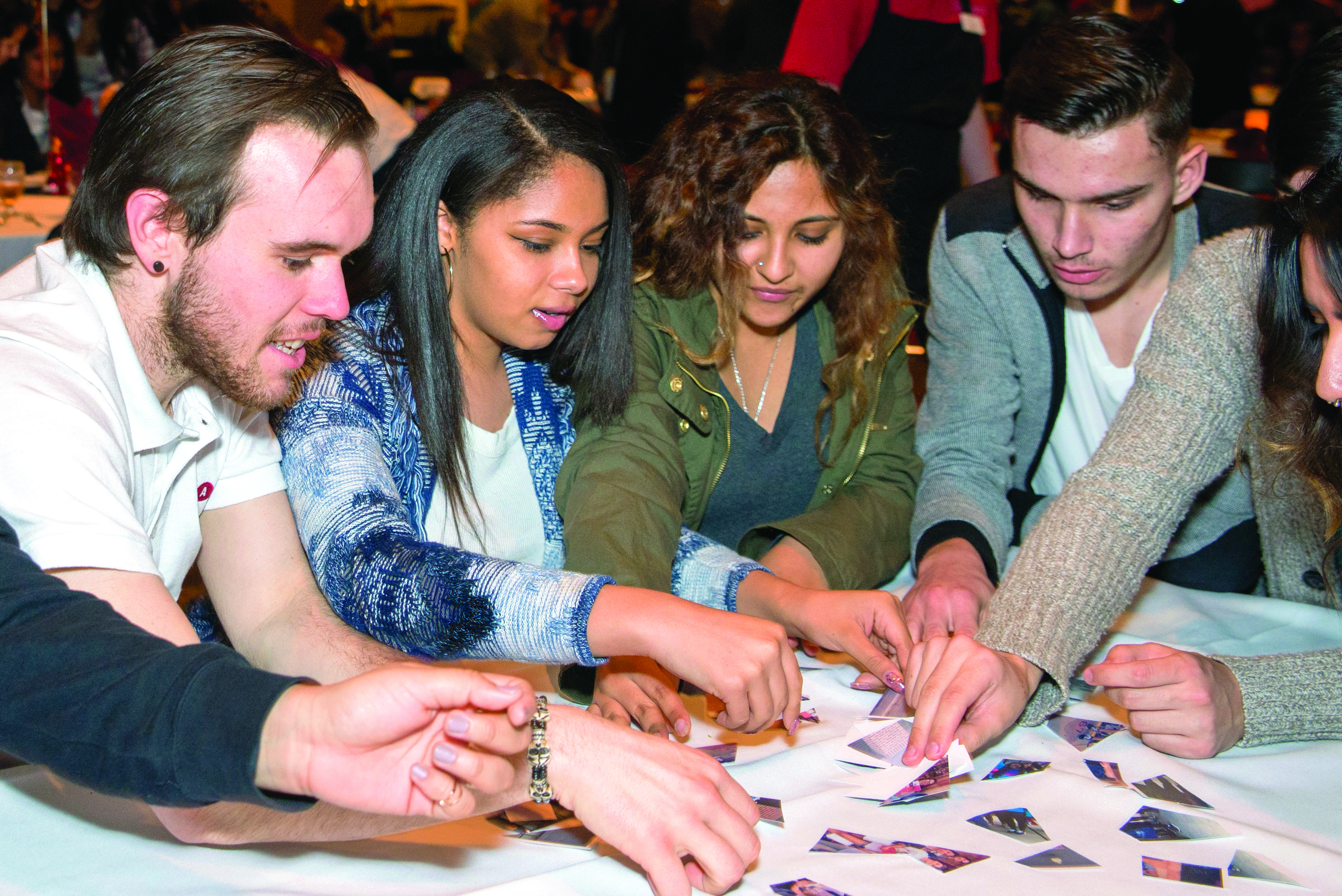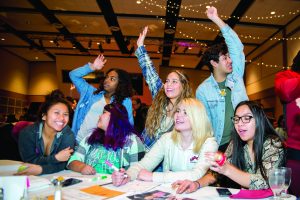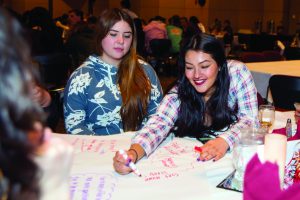New Leadership Gift is Changing Lives

The Chico Student Success Center’s REACH program serves as a vital support system for first-generation students through get-togethers like this one, held earlier this year.
Civil engineering major Maria Mullio is the first in her family to go to college.
“It’s a really big, brave step,” said Heather Schlaff, who met the sophomore in spring 2016 at a dinner for students in Raising Educational Achievement in Collaborative Hubs (REACH)—a new program she supports as a Tower Society member.
As the oldest child of Mexican immigrants, Mullio said she’s accustomed to taking on a lot of responsibility, such as managing her dad’s bank account and coordinating household bills. But, when she arrived on campus, she wasn’t sure what to do next.
“I’m not the kind of person who reaches out for support, so I feel like I would’ve been by myself of a lot,” said the Santa Maria native, who learned about REACH after receiving a letter from the Chico State Student Success Center (CSSC).
The CSSC launched REACH in fall 2015 to create a learning community for first-generation, low-income, and under-represented minority (URM) students, said Gary McMahon, center director.
It focuses on first-year students like Mullio, connecting them to resources, faculty, and other students during a critical time in college.
“Because we all came from similar backgrounds and had the same classes, we were all kind of lost together,” Mullio said.

An important component of REACH is its peer and faculty mentoring program, which pairs juniors and seniors with one of 21 faculty mentors, including history professor Kate Transchel, who first told Schlaff about the program.
Together, peer and faculty mentors organize biweekly “study jams” for their “hub” of 10 students. REACH students also enroll in U-Courses, which otherwise have historically high fail rates for URM students, and they participate in monthly community events.
McMahon says about half of the 200-plus participants were recruited from partner high schools like Mullio’s, while the rest were referred by faculty or staff across campus.
“We all have a biologically engineered need to connect,” McMahon said. “If you don’t have that, the experience in the classroom is greatly going to suffer.”
In the program’s first year, half of REACH students earned a GPA of 3.0 or higher, said McMahon. Compared to their URM cohort, they completed an average of three more course units, had a 5.5 percent higher GPA, and achieved a 16 percent higher pass rate for math remediation classes. They also had a 98 percent pass rate in their U-Courses.
For its success at addressing educational disparities faced by first-generation and low-income college freshmen, REACH earned the 2015 Nicholas Michelli Award for Promoting Social Justice. The award was established by the National Network for Educational Renewal, an organization dedicated to preparing educators and promoting school-university partnerships.
“This is part of the American dream,” Schlaff said. “It’s so important to remember this country was founded on diversity—and without education you are really stuck.”

Mullio said she spoke up more in the classes that she had with fellow REACH students, learned how to purchase and borrow textbooks from her peer mentor, and was taught a key lesson that she didn’t know she needed—the importance of developing relationships with faculty outside of class.
“At first it was strange, because I was really only used to getting help from people in my immediate family,” Mullio said. But throughout her first year, she met regularly with Transchel, who pushed her to engage with other professors, and found comfort that she was always a phone call away.
McMahon and other CSSC staff attribute the tremendous success of REACH and their other programs to the center’s family environment.
“Sometimes you just need someone,” said Mullio, who moved into her first apartment this summer.
Hearing the news, Schlaff teamed up with Transchel to get Mullio established for the school year, giving her a used desk and some chairs for her kitchen table.
“It’s really what we’re here for,” Schlaff said. “If you’re fortunate to have something to give you need to give—otherwise I don’t know what the purpose is for being here.”
And Schlaff isn’t the only Tower Society member who is helping Chico State change lives every day.
During the annual leadership giving program’s inaugural year, 479 Tower Society members gave nearly $4 million to support Chico State’s hands-on education, athletics teams, out-of-classroom experiences, applied research, and community programs. Together, they’re enriching lives across the North State and beyond.


